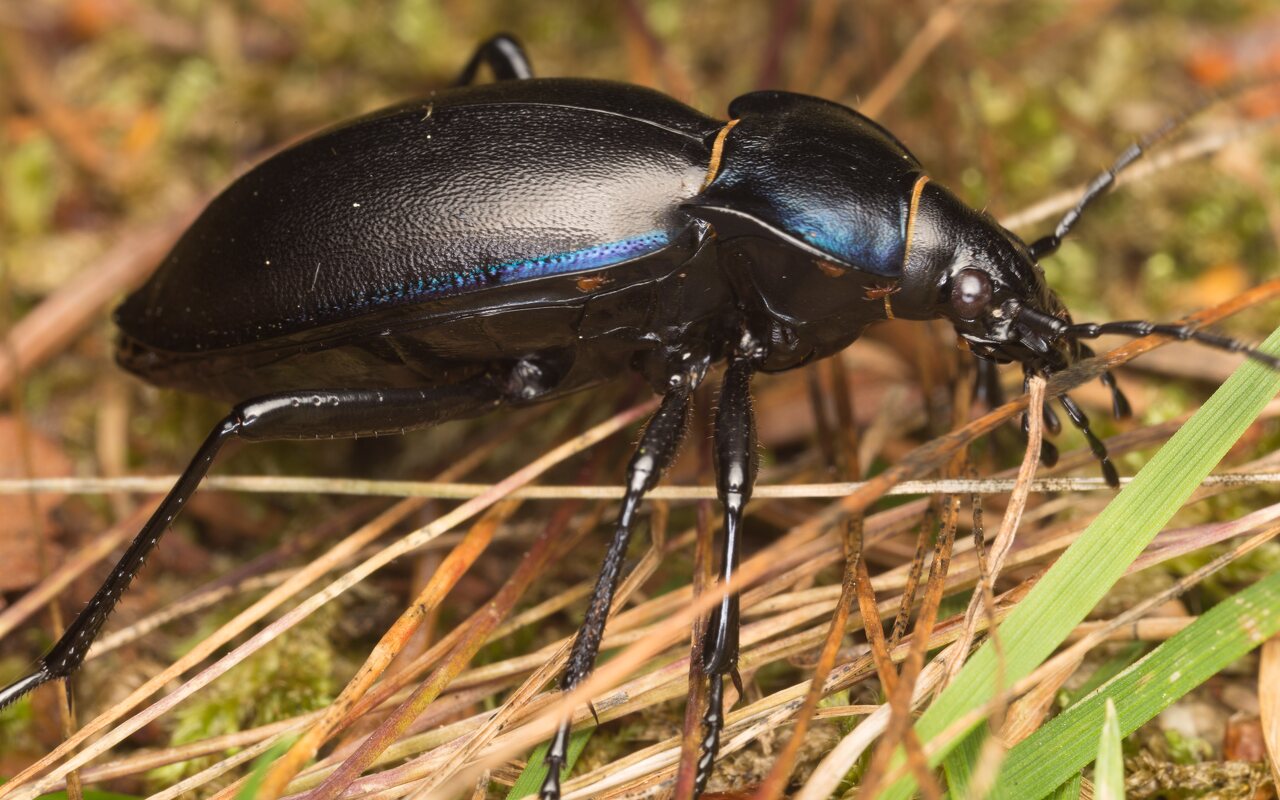
Carabus violaceus · violetinis puošniažygis
- violet ground beetle, rain beetle
- Goldleiste, Violette Laufkäfer, Violettrandige Laufkäfer
- violetinis puošniažygis
- biegacz fioletowy
ukbeetles.co.uk/carabus-violaceus
It is most often encountered in wooded situations but also occurs in parkland, gardens, moorland and overgrown grassland etc. and may also occur in urban areas. Adults are nocturnal, spending the day under logs and bark etc. or in the soil, they are flightless, become active at dusk and may cover a wide area as they move rapidly in search of prey. Both adults and larvae are predatory, consuming mostly soft-bodied prey such as slugs, snails, worms and insect larvae but will take a wide range of food as necessary. Breeding occurs in the autumn whereas further south they are summer breeders, eggs are laid singly or in small groups in the soil or among accumulated organic debris, and larvae emerge after a week or two, they feed and develop through the winter, passing through several instars, and pupate during the spring in a cell in the soil or under logs or bark etc. adults eclose after about 3 weeks and new generation beetles occur from April or May. Adults may be long-lived and overwinter after breeding, they are active and continue feeding in all but the coldest weather when they will remain inactive under logs or in the soil until the temperature increases. During the warmest summer months they may also aestivate in the soil until conditions improve.
Išvaizda ir dydžiu panašus į lygųjį puošiažygį, bet lygiojo priešnugarėlės bei antsaparnių pakraščiuose nėra violetinio ar žydro atspalvio.
‥
0 comments
Add a comment
Comments